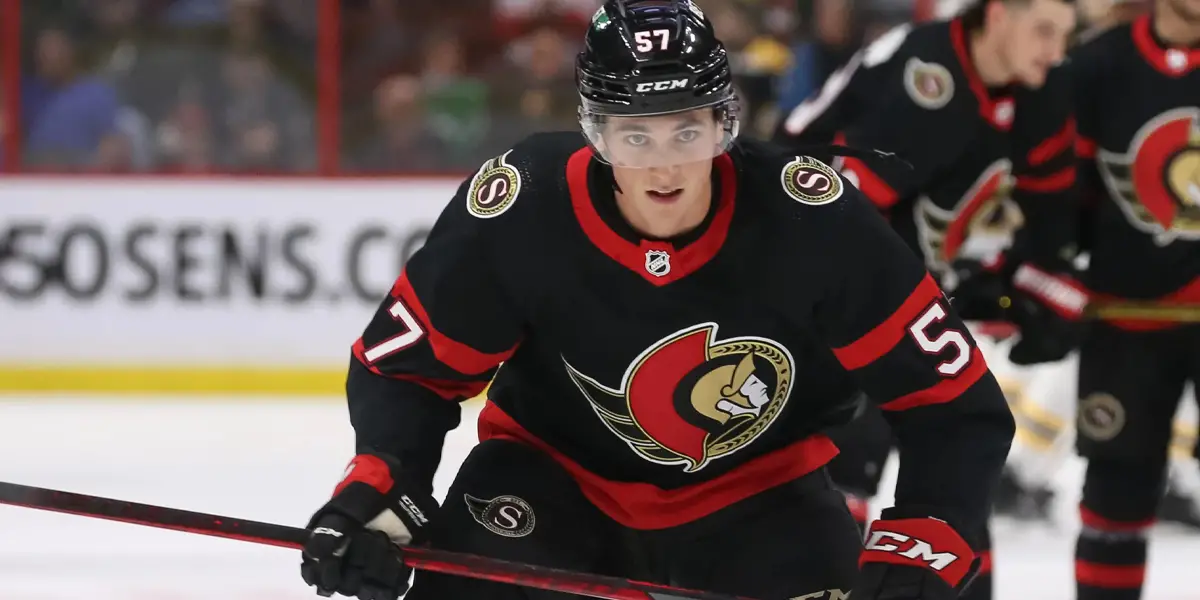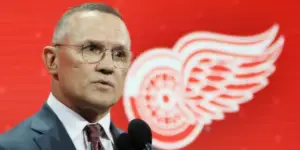
There has always been a connection between sports and gambling, but until a U.S. Supreme Court Decision in 2018 overturned a Federal ban on State-licensed sports betting, there was no direct connection between the gambling industry and the major sports leagues. Now, the two are intertwined so deeply that it is hard to remember the days before sports gambling commercials flooded the airwaves during games, sports broadcasters talked about the odds as part of the in-game commentary, and there were entire shows dedicated to sports betting. The effects on the sports themselves are not yet fully understood, but the signs point to a coming reckoning, and no professional league will be immune.
The NHL was, in some ways, the leader of the pack, having approved an expansion team for Las Vegas that would make their debut in the 2017-2018 season. On the ice, the Golden Knights were a huge success, reaching the Stanley Cup final in their inaugural season. The team’s off-ice success, including the ability to deliver an entertaining experience and draw large numbers of fans, paved the way for the other leagues, with the NFL moving the Oakland Raiders to Las Vegas in 2020 and hosting the Super Bowl there in February.
The establishment of Las Vegas as a sports town is a far cry from the days when the legality of sports betting and the potential for that betting to corrupt sports made put it on the blacklist for franchise expansion. The proliferation of sports betting and the leagues’ embrace of it puts the leagues in an untenable position. How can they take the money that gambling companies offer, air their ads, put their odds on the in-game box score, and then discipline players, coaches, and executives when they bet? Even harder may be trying to convince the public that players are not taking money to affect games in ways that pay off for gamblers. With so many ways to bet and the proliferation of “prop-betting,” the subtle ways in which a professional can tilt the action in favor of a certain bet look daunting.
Merely explaining the rules to players has proved challenging for the leagues as well, particularly for the NHL. Prior to the season, the NHL announced a 41-game suspension for, at the time, unsigned, but now Ottawa Senators forward Shane Pinto for violating the league’s gambling policy. The NHL didn’t offer further details on the violation, saying only that the investigation did not reveal that Pinto bet on the NHL. That lack of clarity has left fans and players wondering what the exact violation was. In fact, many of the players’ union representatives scrambled to ensure that the players were clear on the rules. Despite insistence from the NHL that the policy is clear, the lack of clarity on what exactly Pinto did to deserve the suspension has created an information void. And with betting now such a big part of the game, information voids, which are abhorred by bettors, are not a good look.
In Major League Baseball, where star player Shohei Ohtani and his translator are caught up in a gambling scandal involving wire payments of $4.5 million from Ohtani’s account to a California man suspected of bookmaking, the best-case scenario is that a star player was robbed by a team employee and friend. The worst case goes into territory that none of the leagues are ready for. The NBA just announced an investigation into prop betting irregularities surrounding the statistics of Jontay Porter of the Toronto Raptors. Again, the worst-case scenario would be incredibly damaging to the league, particularly given the evidence that players in every major professional sports league are betting on sports.
The rising interest in and promotion of prop bets can have a devastating impact on competition. The moral ambiguity created by the leagues’ partnership with the sports betting industry creates a gray area, where it is a smaller step to think that certain plays within a game that don’t affect the win-loss outcome of the game are there to be manipulated. It could be as easy as missing an empty net goal, taking a penalty or losing a faceoff.
The combination of easy access to betting and the proliferation of prop betting is toxic for the sports industry. Like addicts, however, the leagues have proven unable to resist the money being thrown at them by the sports gaming industry. They are complicit, having let the fox into the henhouse. It is a matter of when, not if the worst-case scenarios in the current issues the leagues are facing become commonplace.
Sadly, the damage of sports betting will have even larger repercussions for society. Record numbers of Americans are betting on sports, and gambling revenue from sports betting is also at record levels. A study conducted by St. Bonaventure University and Siena College revealed that 39% of American men between the ages of 18-49 bet on sports. Sports bettors overwhelmingly say that betting gives them a rush and makes the games more interesting. But nearly 40% also admit to chasing bets (betting more to try and make up for losses) and feeling shame when they lose a bet.
With so many more Americans, especially young men, betting on sports than ever before, there can be little doubt that the number of gambling addicts will rise proportionally. Lives and families will be ruined by gambling addictions. An entire generation of sports fans is currently growing up caring more about the odds than the results. The leagues, including the NHL, are catering to it. They have chosen to take the money proffered by the sports betting industry with the naïve belief that they can control its impact on their sport. They sound a bit like addicts themselves.
The NHL and the other leagues will surely argue that the product on the ice, fields, and courts has never been better. The leagues have more parity, and the talent among players is undeniable. But the impacts of near-universal legalized sports betting are in their infancy, and it is not much of a stretch to see a dark period ahead for players, teams, the leagues, and the countless number of gamblers whose addiction was enabled by the professional sports leagues themselves. No one believes that the partnership between the sports betting industry and the professional U.S. leagues is going away any time soon. Taking steps to ensure that players understand their league’s gambling policy and a willingness to have the uncomfortable conversations that betting on sports will spark could go a long way to easing some gambling fears. But the impact on society lurks as a huge threat, with no solution on the horizon.
Discover more from Inside The Rink
Subscribe to get the latest posts sent to your email.



